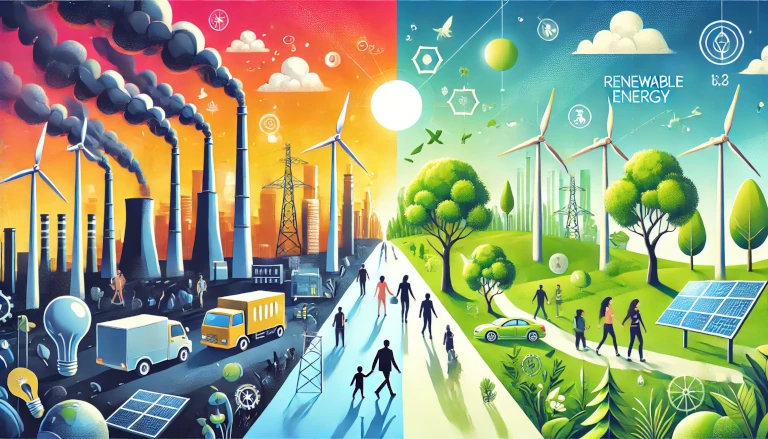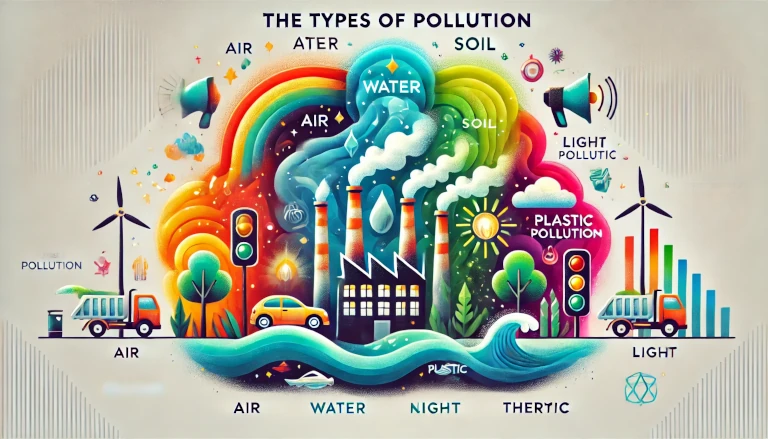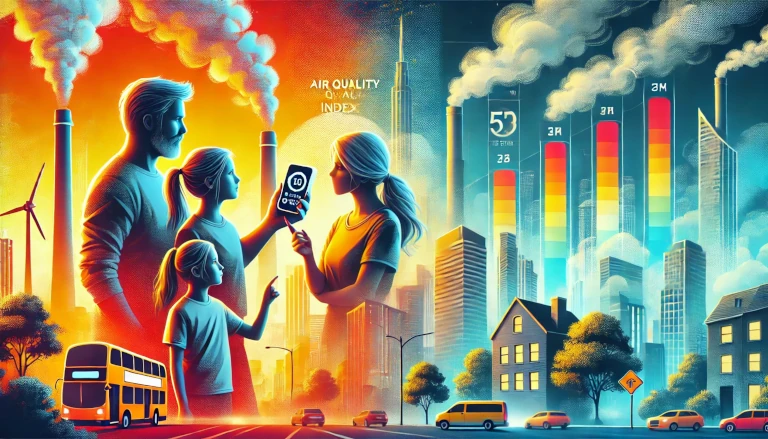Air pollution is a serious environmental issue that affects the health of millions of people worldwide. It not only contributes to respiratory and cardiovascular diseases but also accelerates climate change. While air pollution may seem like a complex problem, there are effective ways we can reduce it at individual, community, and governmental levels. In this blog post, we will explore the top 10 ways to significantly reduce air pollution and make our air cleaner and healthier.
1. Use Public Transportation and Carpooling
One of the major contributors to air pollution is vehicle emissions, which release harmful gases like carbon monoxide, nitrogen oxides, and particulate matter into the air. You can significantly reduce your carbon footprint by using public transportation, such as buses or trains, or by carpooling with others.
Example:
Instead of driving your car to work every day, consider taking the bus or subway. Carpooling with colleagues can also help cut down on the number of vehicles on the road, reducing traffic congestion and air pollution.
2. Switch to Electric or Hybrid Vehicles
Electric vehicles (EVs) and hybrid cars produce fewer emissions than traditional gasoline-powered vehicles. Switching to an EV or a hybrid car can reduce the amount of harmful gases released into the atmosphere, helping to reduce air pollution.
Example:
Tesla and Nissan Leaf are popular electric vehicles that produce zero tailpipe emissions. Hybrid cars like the Toyota Prius combine electric power with gasoline to minimize emissions.
3. Conserve Energy at Home
Electricity generation is one of the largest sources of air pollution, particularly when fossil fuels like coal and natural gas are burned to produce power. By conserving energy at home, you can reduce the demand for electricity and the amount of pollution created by power plants.
Tips:
- Use energy-efficient appliances.
- Turn off lights when not in use.
- Switch to LED bulbs, which use less energy.
Example:
Unplugging appliances when they’re not in use or switching to solar-powered energy sources can reduce household energy consumption and lower emissions from power plants.
4. Support Renewable Energy Sources
Renewable energy sources such as wind, solar, and hydropower generate electricity without emitting harmful pollutants. Supporting these clean energy alternatives can significantly reduce air pollution.
Example:
Installing solar panels on your home can generate clean energy and reduce reliance on fossil fuels. Some utility companies also offer green energy plans where you can opt to source your electricity from renewable resources.
5. Plant Trees and Support Urban Green Spaces
Trees naturally filter the air by absorbing carbon dioxide and releasing oxygen. Supporting afforestation efforts and protecting urban green spaces can help reduce air pollution by increasing the number of plants that clean the air.
Example:
In cities like New York and Tokyo, urban green spaces like parks help improve air quality by absorbing pollutants. You can contribute by planting trees in your backyard or supporting local tree-planting initiatives.
6. Reduce, Reuse, Recycle
Landfills and waste incineration contribute to air pollution by releasing toxic gases like methane and dioxins into the atmosphere. Practicing the “reduce, reuse, recycle” principle can help minimize waste, which in turn reduces the emissions from waste disposal processes.
Example:
Instead of throwing away plastic bottles, recycle them. Buy reusable products to minimize the amount of waste you generate, which reduces the demand for new raw materials and lowers pollution levels.
7. Avoid Burning Garbage or Biomass
Burning household garbage or organic materials like wood and crop residues releases harmful particles and gases that pollute the air. Properly disposing of waste through recycling or composting can significantly reduce air pollution.
Example:
Instead of burning leaves or yard waste, consider composting them to create nutrient-rich soil for your garden. Many cities offer green waste disposal services for organic materials.
8. Use Eco-Friendly Cleaning Products
Many household cleaning products contain volatile organic compounds (VOCs), which contribute to air pollution when they evaporate. Switching to eco-friendly, non-toxic cleaning products can reduce the release of VOCs and improve indoor air quality.
Example:
Brands like Seventh Generation and Method offer cleaning products made from natural ingredients that do not release harmful chemicals into the air.
9. Maintain Your Vehicle and Drive Efficiently
Regular vehicle maintenance, such as changing your oil and keeping your tires properly inflated, can improve your car’s efficiency and reduce emissions. Driving efficiently by avoiding hard acceleration and excessive idling also helps minimize air pollution.
Example:
A car that undergoes regular maintenance emits less pollution than a poorly maintained vehicle. Driving smoothly and reducing idle time in traffic can lower your fuel consumption and emissions.
10. Advocate for Stronger Air Quality Regulations
Governments play a critical role in controlling air pollution through environmental policies and regulations. Advocating for stricter air quality standards and supporting legislation aimed at reducing emissions from factories, transportation, and agriculture can have a large-scale impact.
Example:
Joining environmental advocacy groups and supporting policies like the Clean Air Act in the U.S. can contribute to nationwide efforts to control air pollution and improve public health.
Conclusion
Reducing air pollution requires efforts from everyone—from individuals to industries and governments. By adopting these 10 effective strategies, you can make a significant contribution to cleaner air and a healthier planet. Whether it’s switching to renewable energy, driving less, or planting trees, every small action counts in the fight against air pollution.
Read this in Marathi at “हवेचे प्रदूषण कमी करण्याचे 10 प्रभावी उपाय”
Discover more from Green Ecosystem - Renewable Energy, Agriculture, and Environmental Sustainability
Subscribe to get the latest posts sent to your email.


